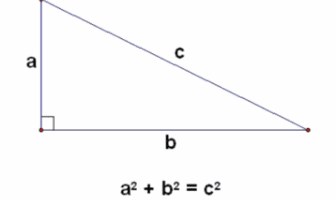
Assuming you can afford to send your child to a private school, would you do it or would you rather send them to public school? ‘Yes’ is the usual answer.
According to a 2012 poll conducted by Ipsos Reid, 58% of Canadian parents think that private school education is better than public, and 63% would send their kids to a private school if money is not a concern. Even if you are not a parent, you might think the same. But why? Here are some possible factors.
Why Do We Think That Private School Is Better Than Public:
1. Marketing:
Canadian private schools, particularly the elite ones, are highly effective at marketing their institutions to parents. They have the funds to invest heavily in their advertising and marketing efforts, and seemingly guarantee to provide the educational outcomes that most parents want for their children.
Private school marketing often makes promises about helping kids get into prestigious universities and pursue academic excellence.
It is also common for private school to flaunt their famous and respected alumni, such as prominent politicians. Similarly, for instance the aim of Singapore international schools is to devote as much individual teacher attention to every student as possible.
2. Better academic outcomes:
The proven favorable academic outcomes from private school education greatly appeal to parents. Browsing through the rankings of Fraser Institute, you will find that a lot of the top-ranking Canadian schools are private ones, even though only 6.8% of students in the country attend private schools. Children in private schools also tend to score higher on tests and, as adults, they are likely to have higher educational credentials, as well.
A significant factor contributing to this success is the strong emphasis many private schools lake city fl (or elsewhere), often place on academic excellence, particularly in subjects like STEM, mathematics, and the sciences. By offering specialized programs and employing experienced teachers, these schools provide students with the tools and support they need to excel.
3. Class sizes and classes:
Class size is the main difference between a public and a private school since public schools usually have bigger class sizes. Smaller class sizes reportedly produce better academic, social and emotional results, and parents would often use this as a basis for choosing their children’s school.
You need to understand that a good international school Singapore aims for the lowest teacher-to-student ratios. In other words, the smaller the class size in terms of the students and not the space, the better will be the overall learning environment. The aim of international school is to devote as much individual teacher attention to every student as possible. This promotes effective learning and ensures that no kid gets left behind in terms of clearing their doubts from the teachers.
Since they are not under government supervision, private schools have the liberty to offer a curriculum that suits their focus. Children who want to study specific fields, like art, theater, or music, would have their desires met in private school. For example, the curriculum of Kepler Academy in downtown Edmonton specializes in promoting education through exploration and discovery, so this school mat fits children who enjoy the adventure. On the other hand, public schools focus more on core classes mainly because of unstable budgets and mandated testing, and neglect the more peripheral subjects.
Curricular liberty also allows private schools to provide various educational options, such as advanced placement, International Baccalaureate, and international exchange programs of the local international school in Singapore. Faith-based, single-gender, and special needs schools are mostly private, too, so parents who want exclusive education for their children generally opt for private schools.
Parents have good reason to send their children to a private school. Even so, we need to consider if the quality of private school education truly is better when the financial advantage of the private school system and its students is cast aside. It is up to parents to decide how they should invest in their children’s education, though international schools enrollment or primary education, but, to quote Benjamin Franklin, “An investment in knowledge pays the best dividends.”
Read Also:




























